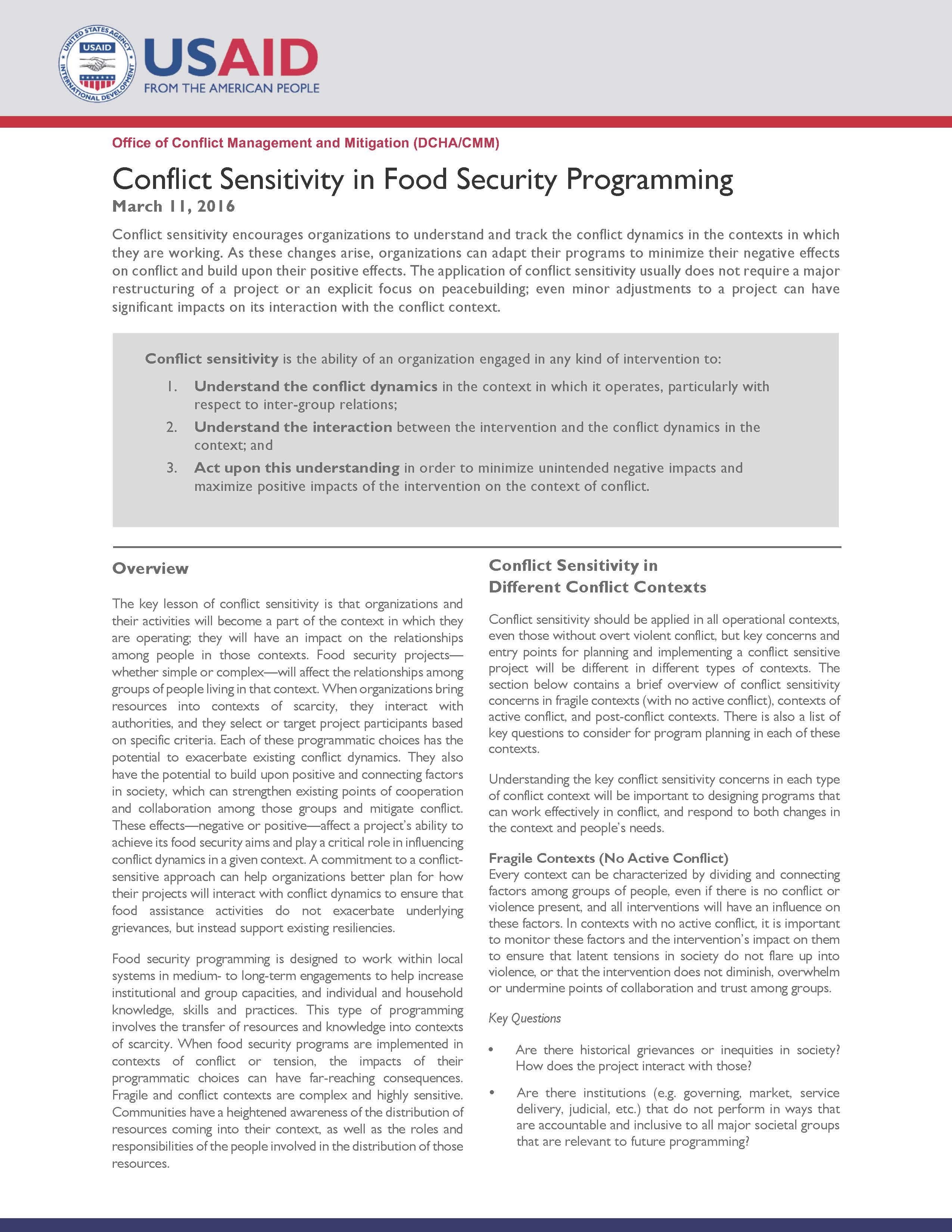The key lesson of conflict sensitivity is that organizations and their activities will become a part of the context in which they are operating; they will have an impact on the relationships among people in those contexts. Food security projects— whether simple or complex—will affect the relationships among groups of people living in that context. When organizations bring resources into contexts of scarcity, they interact with authorities, and they select or target project participants based on specific criteria. Each of these programmatic choices has the potential to exacerbate existing conflict dynamics. They also have the potential to build upon positive and connecting factors in society, which can strengthen existing points of cooperation and collaboration among those groups and mitigate conflict. These effects—negative or positive—affect a project’s ability to achieve its food security aims and play a critical role in influencing conflict dynamics in a given context. A commitment to a conflict sensitive approach can help organizations better plan for how their projects will interact with conflict dynamics to ensure that food assistance activities do not exacerbate underlying grievances, but instead support existing resiliencies.
You are viewing:
Archived Content
Information released online from June 2012 to September 2017.








Comment
Make a general inquiry or suggest an improvement.